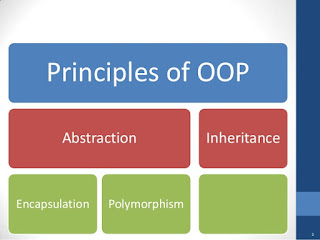Features of object-oriented programming over the procedure-oriented and Java as platform independence
Java makes platform independence possible by translating a program into bytecode instead of machine code. Bytecode is a highly optimized set of instructions designed to be executed by the Java run-time system or JVM (Java Virtual Machine). Translating a Java program into bytecode makes it much easier to run a program in a wide variety of environments because only the JVM needs to be implemented for each platform. Once the run-time package exists for a given system, any Java program can run on it.
Although the details of the JVM will differ from platform to platform, all understand the same Java bytecode. If a Java program were compiled to native code, then different versions of the same program would have to exist for each type of CPU. Thus, the execution of bytecode by the JVM is the easiest way to create truly portable programs.
Although the details of the JVM will differ from platform to platform, all understand the same Java bytecode. If a Java program were compiled to native code, then different versions of the same program would have to exist for each type of CPU. Thus, the execution of bytecode by the JVM is the easiest way to create truly portable programs.


Comments
Post a Comment